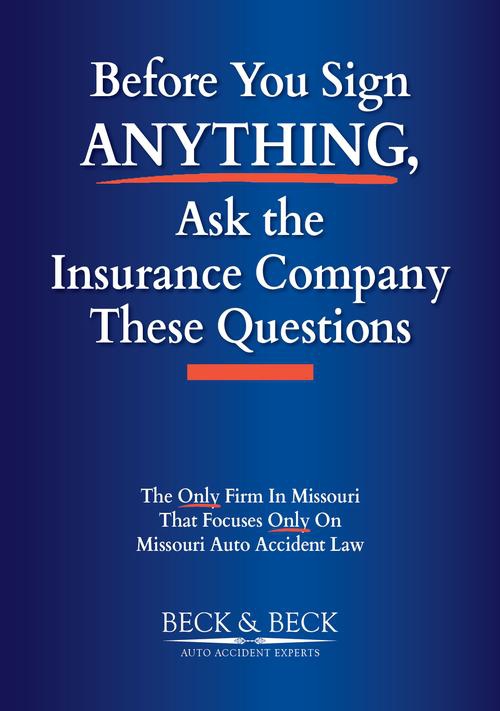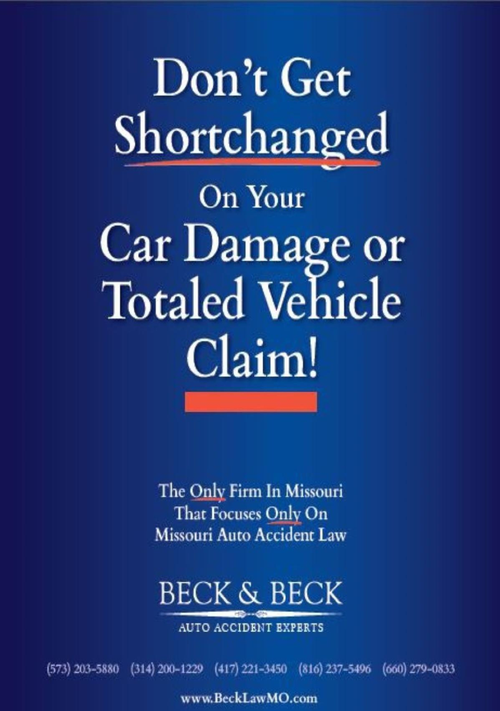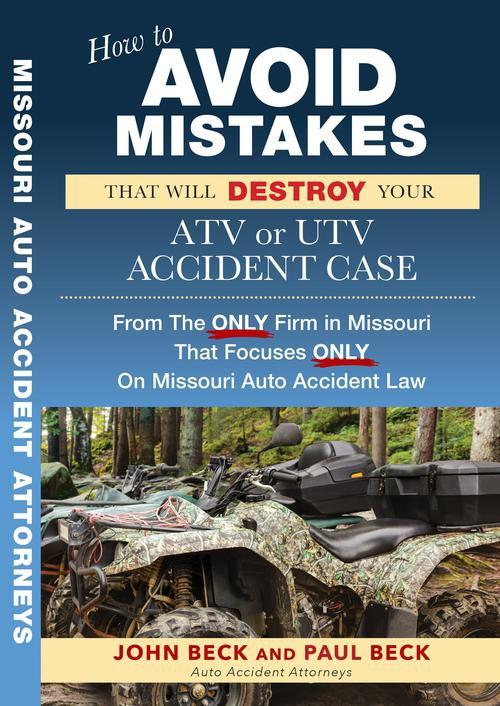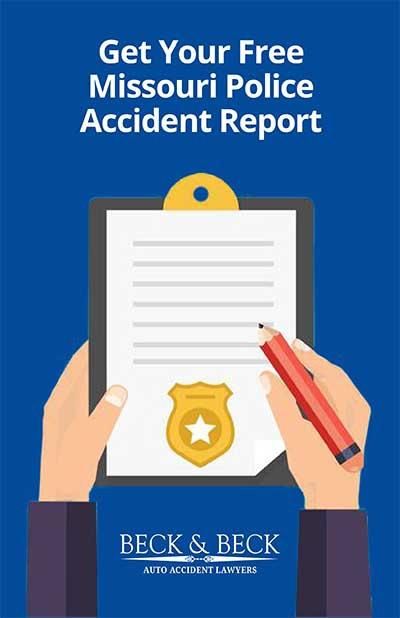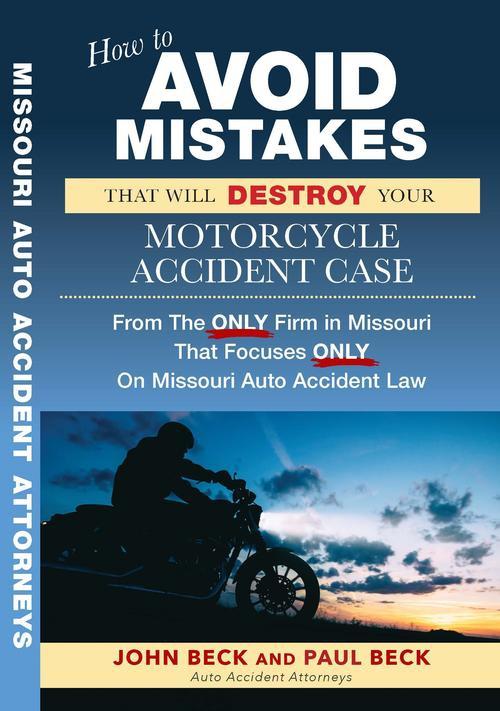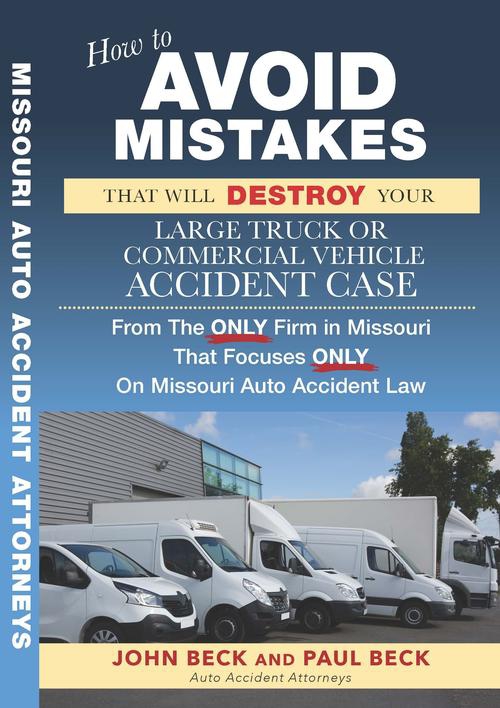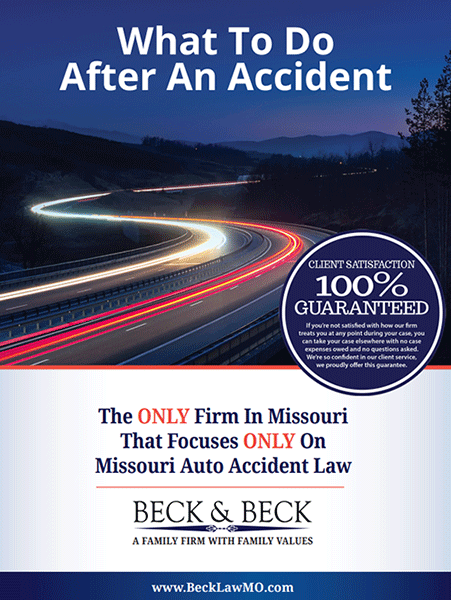In Missouri truck accident claims, vicarious liability allows you to hold a trucking company responsible for their driver’s negligence, even when the company wasn’t directly involved in causing your crash.
This legal principle means the trucking company becomes liable for damages when its employee causes an accident while performing job duties.
Understanding vicarious liability is crucial because trucking companies carry much larger insurance policies than individual drivers, often providing the only path to fair compensation for serious injuries when pursuing claims against them.
What Is Vicarious Liability In Missouri Truck Crashes?
Vicarious liability is when a trucking company becomes legally responsible for its driver’s mistakes. This happens even if the company didn’t directly cause your crash.
The company can be held liable because it controls its driver and benefits from the driver’s work. When their driver causes an accident while working, the company must pay for the damages.
This legal rule matters because trucking companies carry much larger insurance policies than individual drivers. Without vicarious liability, you might only recover a small amount from the driver’s personal insurance, which rarely covers the full cost of serious truck accident injuries.
To establish vicarious liability, certain elements must be proven:
- Employment relationship: The driver works for the trucking company
- Scope of employment: The crash happened while the driver was doing their job
- Driver negligence: The driver caused the accident through their careless actions
The hardest part is usually proving the driver was “on the job” when the crash occurred.
When Is A Trucking Company Responsible For Its Driver?
A trucking company is responsible when its driver causes a crash while performing job duties. Missouri law calls this acting within the “scope of employment.”
The scope of employment includes any activity that benefits the employer or is part of the driver’s regular work routine. Courts examine what the driver was doing at the exact moment of the accident.
Clear examples of the scope of employment include:
- Making scheduled deliveries or pickups
- Driving between authorized stops
- Taking reasonable breaks for food, fuel, or rest during a trip
- Following dispatch instructions or company routes
Activities that typically fall outside the scope include:
- Running significant personal errands unrelated to work
- Taking major detours for personal reasons
- Using the truck for personal business after work hours
Even minor detours don’t automatically free the company from liability. If a driver stops for coffee during a delivery route and causes a crash, the company is usually still responsible.
Trucking companies often argue that their driver wasn’t working to avoid paying your claim. Our experienced truck accident attorneys in Missouri investigate the driver’s activities and gather evidence to prove they were on the job when they hit you.
What Is The McHaffie Rule In Missouri Truck Cases?
The McHaffie Rule comes from a Missouri court case that limits specific claims against trucking companies.
When Can Negligent Hiring Or Punitive Damages Still Apply?
Important exceptions to the McHaffie Rule let you pursue additional claims against the trucking company. These exceptions are crucial for getting full compensation.
You can still pursue these claims when:
Punitive damages apply:
The company’s conduct was so reckless that it is beyond regular compensation
Direct company negligence:
The company’s own actions, separate from the driver’s, helped cause your crash
Systematic safety violations:
Evidence shows the company regularly ignores safety rules or has a pattern of dangerous practices
At Beck & Beck Missouri Car Accident Lawyers, we know how to investigate these exceptions and preserve your right to maximum compensation. The company can’t use the McHaffie Rule to escape responsibility for its own dangerous conduct.
Does Independent Contractor Status Block Company Liability?
Trucking companies often claim their drivers are independent contractors, not employees, to avoid liability. Missouri law looks at the real working relationship, not just what the contract says.
The key question is how much control the company has over the driver’s work. If the company controls essential aspects of the job, the driver is legally an employee for liability purposes.
Courts examine these control factors:
- Schedule control: Who decides delivery times and routes
- Equipment ownership: Who provides or controls the truck and trailer
- Company policies: Whether the driver must follow specific company rules
- Payment structure: How and when the driver gets paid
- Supervision level: How closely the company monitors the driver’s work
Many so-called “independent contractors” are actually employees under Missouri law. We investigate the actual working relationship to hold the right parties responsible for your injuries.
If the company exercises significant control, it can’t hide behind contractor labels to avoid paying your claim.
Can Brokers Or Shippers Be Liable Under Missouri Law?
Yes, other companies involved in your truck’s journey can share liability for your crash. Freight brokers arrange transportation between shippers and carriers. Shippers own the cargo being transported.
These third parties become liable when their negligence contributes to your accident, making identifying the right defendant crucial for full recovery. We investigate all parties who had control over the truck or cargo.
| Party | Liability Situations | What We Investigate |
| Freight Broker | Hired unsafe carrier, ignored safety ratings, controlled dispatch | Carrier selection process, safety records, communication logs |
| Shipper | Improper loading, hazardous materials, weight violations | Loading procedures, cargo manifests, weight tickets |
| Warehouse | Overloaded truck, unsecured cargo, dangerous loading | Bills of lading, loading dock procedures, weight distribution |
Finding all liable parties increases your potential compensation. Each party may have separate insurance coverage, giving you more sources of recovery for your injuries.
What Evidence Proves Company Responsibility?
Proving trucking company liability requires specific evidence that can disappear quickly. Federal regulations allow companies to destroy records after 6 months to 3 years.
We send preservation letters immediately upon your hire. These legal notices require all parties to preserve evidence related to your crash.
Key Records We Move To Preserve Immediately
Time is critical because trucking companies can legally destroy crucial evidence. We preserve evidence promptly after being hired.
Essential evidence includes:
Electronic logging device data: Shows driver hours, speed, location, and route information
Dispatch communications: Proves company control through radio logs, text messages, and instructions
Driver qualification files: Contains hiring records, background checks, training documents, and violation history
Drug and alcohol testing records: Shows compliance with federal testing requirements
Vehicle maintenance records: Reveals known mechanical problems and inspection results
Bills of lading and shipping documents: Prove what was being transported and establish a work relationship
This evidence helps accident reconstruction experts and other expert witnesses understand how your crash happened and who’s responsible. Without quick action, crucial proof can be lost forever.
How Does Driver Negligence Trigger Company Liability?
When a truck driver makes a mistake while working, their employer is responsible under the legal doctrine of respondeat superior. This Latin term means “let the master answer.”
The company must pay for damages caused by its employees’ negligent actions during work hours. This applies even if the company had good policies and training.
Ordinary driver negligence that creates company liability:
Hours of service violations:
Driving beyond legal limits, causing dangerous fatigue.
Distracted driving:
Using phones, eating, or other activities that take attention from driving.
Speeding or aggressive driving:
Often caused by company pressure to meet unrealistic deadlines.
Impaired driving:
Alcohol or drug use is sometimes missed by inadequate company testing.
Maintenance failures:
Ignoring vehicle problems or skipping required inspections.
The connection between driver fault and company responsibility is automatic when the driver is working. You don’t need to prove the company knew about the driver’s specific dangerous behavior.
Who Else Can Be Liable In A Truck Crash?
Truck accidents often involve multiple responsible parties beyond the driver and trucking company. We investigate every potential source of liability to maximize your compensation.
Other parties that may be liable include:
Parts manufacturers are responsible when defective components like brakes, tires, or steering systems cause crashes. We examine recall notices and similar failure patterns.
Maintenance companies are at risk when improper repairs or missed inspections contribute to accidents. Third-party repair shops must meet federal maintenance standards.
Loading companies are notified when cargo shifts or falls due to improper securing methods. Weight distribution affects how trucks handle and stop.
Government entities should address dangerous road conditions, missing signs, or poor design that contribute to crashes. Special notice requirements and deadlines apply to these claims.
Each additional liable party means more potential insurance coverage for your injuries. We don’t stop investigating until we’ve identified every responsible party.
What Missouri Rules Affect Your Truck Claim?
Missouri state law controls your right to compensation, even though federal trucking regulations apply to the accident. Understanding these rules protects your claim.
The pure comparative fault rule allows you to recover damages even if you were partially at fault. Your percentage of fault reduces your compensation. If you’re 20% at fault in a $100,000 case, you may still recover a portion of your damages.
The statute of limitations for Missouri truck accidents gives you five years to file injury lawsuits, but only three years for wrongful death claims. Missing these deadlines permanently eliminates your right to compensation.
Missouri’s seat belt defense allows up to 1% reduction in damages if you weren’t wearing a seat belt and it worsened your injuries. This slight reduction rarely affects the case value significantly.
These Missouri-specific rules require experienced legal guidance. We know how to navigate state law while building your strongest possible case.
What Should You Do After A Missouri Truck Crash?
The steps you take immediately after a truck crash can protect your health and legal rights. Trucking companies send investigators to the scene quickly, so you need to act fast, too.
Critical steps to protect yourself:
Get medical treatment immediately:
Truck crashes cause serious injuries that aren’t always obvious right away.
Document everything possible:
Take photos of vehicles, scenes, injuries, and road conditions from multiple angles.
Collect witness information:
Get names and phone numbers before people leave the scene.
Avoid recorded statements:
Don’t talk to insurance adjusters without a lawyer present.
Contact us immediately:
We’ll send preservation letters to protect crucial evidence.
Don’t try to handle the insurance companies alone or let them pressure you into accepting less. They have teams of lawyers and investigators working against you from day one.
Consult With Our Missouri Truck Accident Attorneys Today
Our legal team at Beck & Beck Missouri Car Accident Lawyers has over 35 years experience helping accident victims and have secured significant recoveries for our clients.
Our experienced attorneys know how to investigate complex liability issues and fight for maximum compensation. Contact us today for a free consultation to learn more about how we can assist you after a truck accident in Missouri.
Frequently Asked Questions
What does respondeat superior mean in Missouri truck accident cases?
Respondeat superior is a legal rule that makes employers responsible for their employees’ negligent actions during work. In truck cases, it means the trucking company must pay for damages when their driver causes a crash while working.
Can I sue for negligent hiring if the trucking company admits their driver was at fault?
Under Missouri’s McHaffie rule, you usually cannot pursue negligent hiring claims once a company admits vicarious liability. However, exceptions exist for punitive damages or when the company’s own direct negligence contributed to your crash.
How do you prove a truck driver was working at the time of the accident?
We use dispatch logs, electronic logging device data, bills of lading, and GPS records to show the driver was performing job duties. Even stops for fuel or meals during delivery routes typically count as working time.
Can freight brokers be held liable for truck accidents in Missouri?
Yes, freight brokers can be held liable if they negligently select an unsafe trucking company or exercise control over the shipment. We investigate broker contracts and communications to determine their level of responsibility.
What happens if the trucking company claims their driver was an independent contractor?
Missouri courts examine the actual working relationship, not contract labels. If the company controls the driver’s work schedule, routes, or methods, it can be held liable regardless of the driver’s independent contractor status.
What if crucial evidence gets destroyed before we can preserve it?
When trucking companies intentionally destroy evidence, it’s called spoliation. Courts can impose sanctions, including instructing juries that destroyed evidence was harmful to the company’s case.
How does Missouri’s comparative fault rule affect truck accident settlements?
Missouri uses pure comparative fault, which reduces your compensation by your percentage of fault but never eliminates it.
How quickly should I contact a lawyer after a truck crash in Missouri?
Contact us immediately, preferably within 24 hours. Trucking companies can legally destroy necessary evidence after six months, and witness memories fade quickly. Early legal action protects your right to full compensation.

